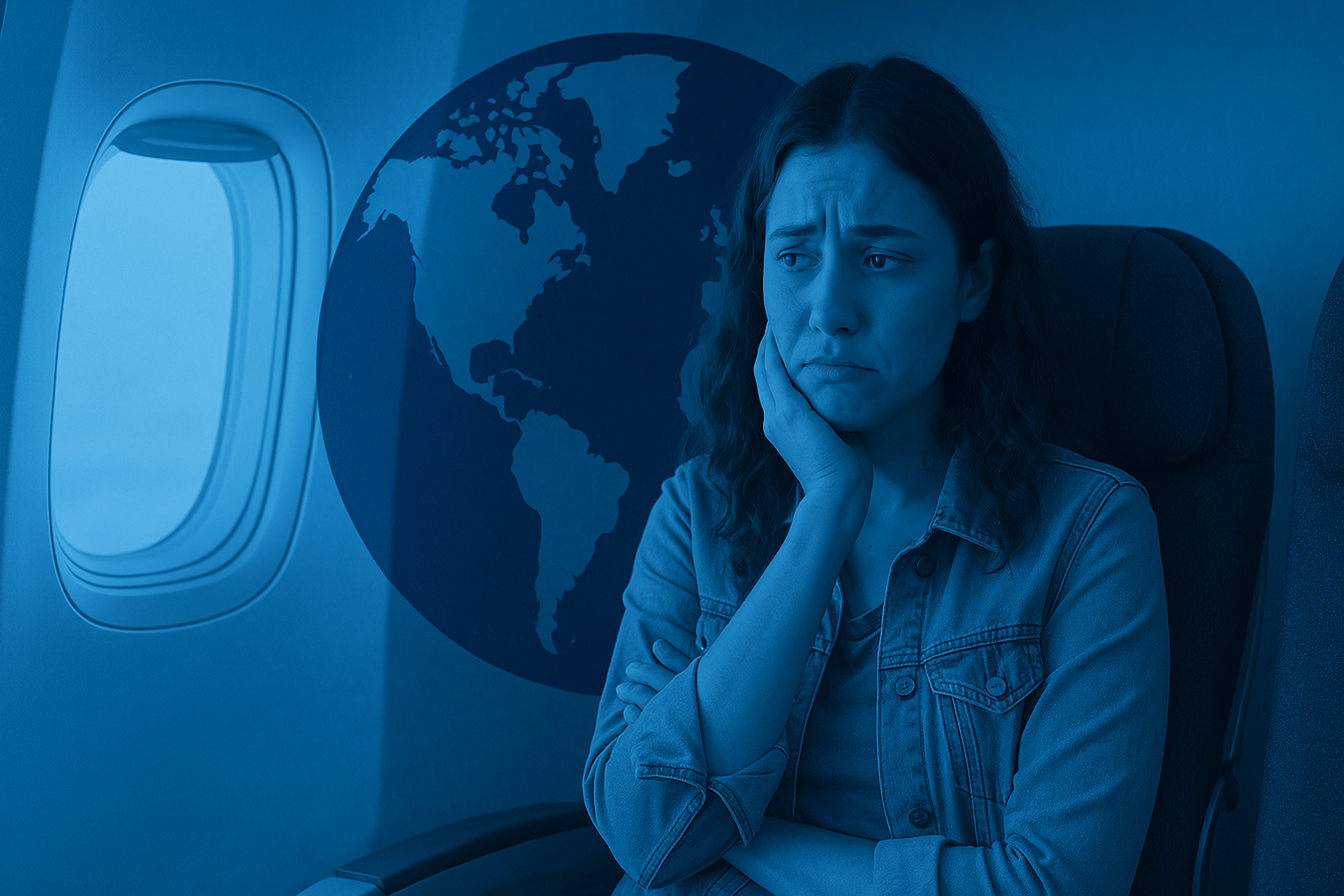Introduction – Climate Guilt Is Reshaping Leisure
For decades, travel was the ultimate escape—an indulgence immune to guilt, framed by freedom, adventure, and status. But that era is ending. Today, more consumers are checking carbon footprints before flight prices, weighing ethical trade-offs alongside destination guides, and asking a new, uncomfortable question: Is this trip worth the impact?
The rise of the “conscious consumer”—a traveler increasingly aware of the environmental cost of their choices—is disrupting the travel industry from the inside out. It’s no longer enough for hotels to skip plastic straws or for airlines to gesture at offset programs. The modern traveler isn’t just interested in going somewhere—they want to know that their presence won’t contribute to a warming planet or worsening crisis.
This shift is driven by more than eco-trends. It’s fueled by climate anxiety, social accountability, and digital transparency. What was once wanderlust is now laced with responsibility—and businesses in the travel sector that fail to recognize this shift risk becoming not just irrelevant, but publicly criticized.
In this article, we’ll explore the roots of this rising climate-conscious mindset, the behaviors shaping travel today, and the urgent need for brands to evolve beyond green promises to actual sustainable transformation.
The Eco-Anxious Traveler: A New Profile Emerges
The carefree tourist is being replaced by a new type of consumer: the eco-anxious traveler. This isn’t someone who’s against travel—it’s someone who travels while carrying the weight of their carbon footprint. They’re scrolling through flight options with one hand and Googling “climate impact of air travel” with the other.
This mindset shift is especially pronounced among younger generations. They, raised in the shadow of climate reports and extreme weather, are far more likely to factor environmental concerns into their purchasing habits—including vacations. They want transparency, accountability, and options that align with their values—not just glossy photos and bucket-list itineraries.
And it’s not just about flights. Eco-conscious travelers are questioning everything—from the sourcing of hotel food to the ethics of wildlife tours and the waste practices of cruise lines. They’re scrutinizing travel brands the way previous generations scrutinized pricing.
This group doesn’t just want less harm—they want more impact. They’re looking for regenerative experiences: ones that support local economies, restore ecosystems, or contribute to conservation. In other words, travel that gives back more than it takes.
The message is clear: for this new traveler, ethics are as important as experiences.
Flight Shame and the Ethics of Exploration
The idea of travel as a moral dilemma might have seemed absurd a decade ago. But today, flight shame—a term popularized in Swede
n as flygskam—has entered the mainstream vocabulary of climate-conscious consumers. It’s not just a fringe concern; it’s reshaping how people think about long-haul flights, frequent flying, and luxury getaways.
At the heart of this guilt is a hard truth: aviation is responsible for 2–3% of global CO₂ emissions, and there are few scalable solutions in place to offset that impact. Electric planes are far from commercial viability, and most offset programs—while well-intentioned—are under scrutiny for lacking transparency and long-term effectiveness.
Conscious consumers are aware of this, and many are actively reducing their air travel. Some opt for trains over planes, others choose fewer trips with longer stays, and a growing number are exploring alternatives like “staycations” or local immersion experiences. In higher-income circles, not flying isn’t a sign of frugality—it’s a badge of ethical awareness.
Meanwhile, luxury travel is facing a reckoning. The concept of flying halfway across the world for a weekend in a private villa is increasingly seen not as aspirational, but as tone-deaf. Consumers are asking: Is this kind of leisure responsible in the face of a climate emergency?
For travel brands, this shift signals a stark new reality: ethics now compete with escapism.
Greenwashing and Consumer Pushback
As sustainability becomes a selling point, many travel brands are rushing to paint themselves green. But there’s a problem: most of it is marketing fluff. From “eco-lodges” that still rely on diesel generators to airlines boasting about offset programs while expanding flight routes—greenwashing is rampant in the travel industry.
Conscious consumers aren’t buying it anymore. Armed with information and skepticism, they’re digging deeper—reading environmental impact statements, scanning carbon reports, and calling out vague sustainability claims on social media. A recycling bin in the lobby or a “save the towels” sign isn’t enough to earn their trust.
Worse, when consumers discover that a brand’s eco-claims don’t hold up, the backlash can be fierce. Negative press spreads fast. So do bad reviews. And reputational damage in the sustainability space is hard to recover from—especially when transparency and trust are core to what the conscious traveler values.
This is why performative sustainability has become a liability. Brands that overpromise and underdeliver are no longer just seen as lazy—they’re seen as dishonest. And that dishonesty is costing them more than bookings—it’s costing them credibility.
In an era where climate consciousness is rising, the only winning strategy is this: don’t say it unless you can prove it.
What Conscious Consumers Actually Want
Forget vague promises and recycled slogans. Conscious travelers today want tangible, measurable impact—and they’re more than willing to change their habits to get it. The travel industry is no longer just competing on luxury and experience—it’s competing on values and verifiability.
So what are these consumers actually looking for?
First, they’re choosing slow travel—fewer flights, longer stays, and deeper immersion in local cultures. This shift reduces emissions and boosts local economies. They’re also opting for climate-conscious itineraries, prioritizing low-carbon transportation, accommodations with verified sustainability certifications, and experiences that give back.
Second, they want transparency. What are your emissions? How do you handle waste? Are your staff paid fairly? Vague claims won’t cut it—they expect data, detail, and documentation.
Third, they value regenerative tourism. This goes beyond minimizing harm; it means leaving a destination better than it was. Think reforestation initiatives, biodiversity projects, or partnerships with Indigenous communities. Conscious consumers are increasingly drawn to brands that build positive environmental and social outcomes into their business model.
Ultimately, they don’t want guilt-free illusions. They want meaningful choices. And if travel companies offer that—real sustainability, not just the story of it—they’ll earn fierce loyalty from a generation that sees travel not as a right, but a responsibility.
Conclusion – Adapt or Get Grounded
The age of indulgent, no-questions-asked tourism is over. In its place stands a new kind of traveler—one who weighs impact alongside itinerary, and who sees sustainability not as a bonus, but as a baseline expectation. For travel brands, this isn’t a passing trend—it’s a seismic shift in market behavior.
Conscious consumers are forcing the industry to evolve. They’re holding brands accountable, demanding transparency, and rewarding those that make real, measurable commitments to sustainability. The pressure is on—not just to look green, but to be green in ways that matter.
For the companies that get it right, the rewards are massive: loyalty, advocacy, and leadership in a redefined market. But for those that continue with business as usual—greenwashing, overpromising, underdelivering—the runway is running out.
This is more than a wake-up call. It’s a new reality. And in this reality, the future of travel doesn’t belong to the loudest marketers—it belongs to the most honest ones.
Ressources :
- UNWTO – Sustainable Tourism
- BBC – What is Flight Shame?
- Greenbiz – Greenwashing in Travel
- H-in-Q Analytics



